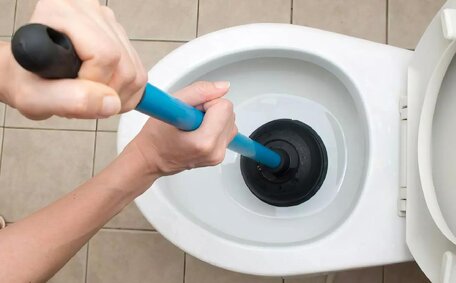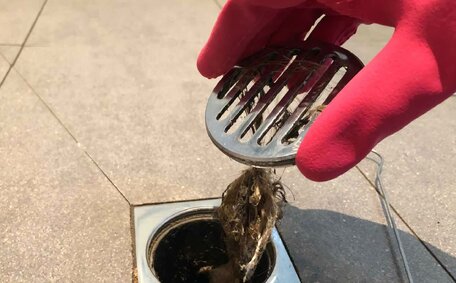
How to Prevent Household Blocked Drains
Blocked drains can be prevented by using drain strainers, avoiding pouring oils down drains, clearing hair from drains, and more tips from Seven Hills Plumbing.
Read MoreYou’ll learn why your hot water taps might be running cold and get actionable troubleshooting tips to resolve it before seeking professional help.
We’ll look at issues like trapped air in the pipes, problems with individual faucets, insufficient hot water pressure, and faulty water heaters. Simple DIY fixes like bleeding radiators, cleaning faucet aerators, and adjusting your water heater temperature may resolve the issue.
Should these remedies fail, you’ll learn when to engage a plumber for an inspection.
We’ll outline warning signs like a complete lack of hot water, rust-coloured water, strange noises, and error codes that indicate when professional attention is necessary. These issues, while frustrating, can often be quickly and affordably resolved by a knowledgeable plumber.
Let’s decipher the usual suspects behind your hot tap dispensing cold water:
Issues such as damaged washers or clogged filters can restrict flow, leading to an unstable water temperature, emphasising the need to pinpoint and rectify these causes.
Sediment accumulation in your hot water tank can severely reduce pressure. Minerals and rust build-up, if not addressed, impair water flow and pressure.
Accumulated sediment in pipes increases friction, hindering hot water from reaching your taps, a problem a plumber can swiftly resolve.
Sediment build up in the cold water pipe, if left unchecked, also undermines your water heater’s efficiency by encasing the heating elements or gas burners. Such circumstances push the heater to overwork and use more power to keep the water hot.
Maintenance such as annual flushing of your water system is vital to prevent sediment build-up, maintaining efficient water flow and heating.
Electric water heaters have two thermostats connected to the upper and lower heating elements. If one fails, you may get some hot water but not enough. If both malfunction, there will be no hot water at all.
Malfunctions in shut-off and relief valves, especially those linked to your tankless water heater, can restrict or stop water flow, leading to an undesired release of cold water. A malfunctioning tempering valve, designed to mix hot water with cold for safety, can also disrupt the temperature balance.
If you experience a total absence of heated water, it often signals the need for repairs or replacement of the hot water unit. It’s best to consult a professional plumber, ensuring accurate diagnosis and repair to restore your supply of hot water.
Electric water heaters have two thermostats connected to the upper and lower h prevent you from getting hot water. Internal components, like cartridges and washers, wear out over time and fail to regulate the mix of hot and cold water correctly.
Certain signs may indicate complications with your hot water supply, such as:
Plumbing valves like non return valve and tempering valves also play a role in controlling water temperature and flow. a jammed non-return valve can thwart the arrival of hot water to your out tap when it’s most desired. A heat trap, integral to your hot water system’s efficiency, can fail when reliable tempering valves malfunction and mix in too much cold water.
Swapping out depleted faucet washers and cartridges is often your home’s quickest DIY remedy to regain full throughput from the hot water heater. For valves that require specialty tools, a plumber can handle the replacement or repair.
There are a few basic troubleshooting steps you can try yourself before calling a plumber:
Should essential troubleshooting fail to yield results and there’s still no water coming out, it’s time to summon a professional plumber for a thorough inspection. They can diagnose issues with valves, thermostats, heating elements, and sediment buildup.
There are a few basic troubleshooting steps you can try yourself before calling a plumber:
There are a few DIY troubleshooting steps you can try before calling a professional plumber:
Should these initial efforts grant you only lukewarm success from your taps, engaging with a skilled plumber to assess your plumbing in greater depth becomes imperative. They can diagnose and repair issues like faulty water heaters, thermostats, and valves.
While some cold water issues can be resolved with simple DIY troubleshooting, certain scenarios require calling in professional plumbing repair services like Seven Hills Plumbing for inspection and repairs:
Our qualified plumbers will diagnose and remedy hot water system glitches, guaranteeing that your taps supply hot water efficiently.
Utilising sophisticated methods, we clear obstructions and descale your water lines, ensuring dependable hot water flow. Contact Seven Hills Plumbing at 1300 349 338 or [email protected].
Encountering cold water instead of hot can be frustrating, yet solvable. Common issues range from sediment buildup to faulty water heaters, and worn washers to malfunctioning valves.
Basic troubleshooting like checking other taps, inspecting your water heater, and bleeding radiators can pinpoint the issue. Simple DIY fixes like flushing your system, replacing aerators, and insulating pipes may restore hot water flow.
Should problems persist, contact Seven Hills Plumbing. Our expert plumbers will rectify any underlying concerns to optimise your hot water systems.
Avoid cold showers and dishwashing troubles by using our tips. For efficient and cost-effective hot water repairs, call Seven Hills Plumbing at 1300 349 338 to reclaim the warmth you deserve.
Blocked drains can be prevented by using drain strainers, avoiding pouring oils down drains, clearing hair from drains, and more tips from Seven Hills Plumbing.
Read MoreNoticing signs of a household blocked drain like slow drainage, gurgling sounds, foul odours or overflowing water indicates you need an emergency plumber. Call Seven Hills Plumbing to dispatch a plumber to clear your blocked pipes before further damage.
Read MoreRestaurants and cafes frequently deal with blocked kitchen drains due to grease, fat and food buildup. Prevent clogged pipes through scraping plates, using drain strainers and avoiding pouring fats/oils down sinks. Or call a professional plumber to hydro jet pipes and permanently clear blockages.
Read MoreSeven Hills, 2147 NSW
We will call back as soon as possible.




